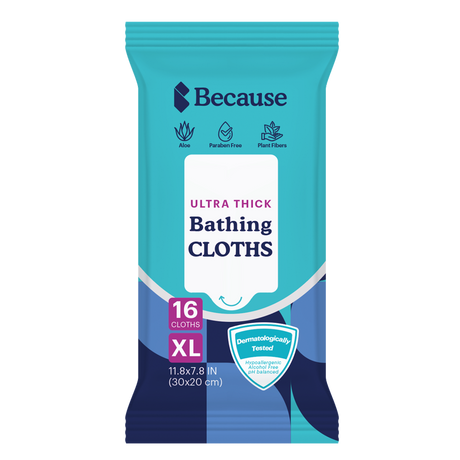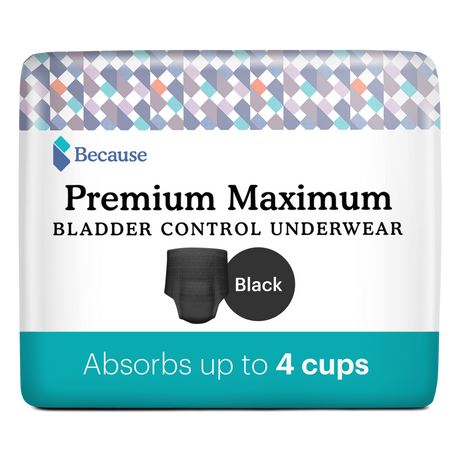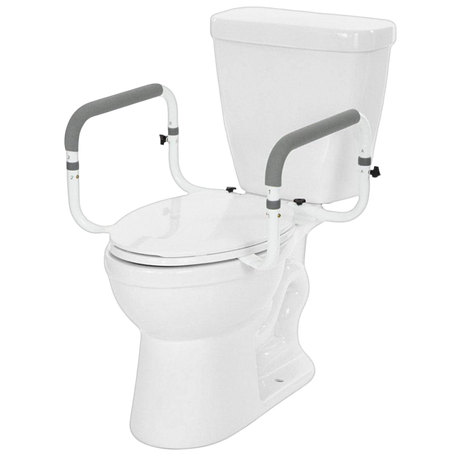Around 19% of adults in the U.S. suffer from an anxiety disorder, and millions more deal with chronic psychological stress. If you’re one of them, you know anxiety and stress affect more than just your emotions and thinking; they can also take a toll on your physical health.
Headaches, stomach problems, shortness of breath, and muscle aches and pains are some of the most well-known physical symptoms of anxiety and stress — but there are other less-often talked about anxiety symptoms.
If you have anxiety or are going through stress, you might also experience urinary tract symptoms. This trend leads to whether there’s a connection between anxiety and UTI or if something else is to blame. Read on to get the facts about the effects of anxiety on urinary health.
Understanding UTI

A urinary tract infection (UTI) occurs when bacteria — usually Escherichia coli (E. coli) — enter the lower urinary tract through the urethra. If the E. coli bacteria can stick to the lining of the urethra, it can reproduce and cause an infection in the urethra or bladder.
The immune system releases chemicals that cause inflammation in response to the infection. This effect brings about the symptoms of UTIs, including:
- Pain and pressure in the abdomen
- Increased urination
- Passing less urine when trying to urinate
- Persistent urge to urinate that doesn’t stop even when you use the bathroom
- A burning sensation upon urination
- Strong-smelling or cloudy urine
- Cognitive and behavioral changes in elderly patients
If left untreated, a UTI can spread to the kidneys, causing a more serious infection. Signs of this include fever, back or side pain, shaking, chills, vomiting, and nausea.
Can Anxiety Cause UTIs?
Bacteria are the cause of UTIs, while E. coli and other bacteria are naturally present in stool and could be in the area around the anus as a result. Germs can get introduced into your urethra through many means. Sexual intercourse and wiping from back to front (rather than front to back) are two main ways E. coli and other infection-causing bacteria enter the urethra.
Anxiety doesn’t put you at an increased risk of being exposed to bacteria and can’t cause an infection on its own. However, there is still a potential connection between anxiety and UTI due to the effect the mental health condition has on the immune system.
The Effects of Anxiety on Your Immune System
Research dating back to the 1980s confirms that anxiety can interfere with your immune system, and subsequent studies have uncovered how this occurs.
To understand how anxiety affects immune health, you should know how the body’s stress response works. Our ancient ancestors faced many deadly physical threats and evolved to experience the fight or flight response. In response, this defense mechanism triggers the release of stress hormones (like adrenaline and cortisol) when you’re in danger.
These body chemicals increase heart rate, breathing rate, and blood pressure, putting you in a heightened state of alertness while activating the immune system — so it’s ready to heal if you’re injured. Due to these changes, you can better run from or fight off a threat. After the danger has passed, your parasympathetic nervous system sends signals that lower cortisol and adrenaline levels, allowing your body to return to normal.
Today, most people aren’t running from predators or facing dangerous environmental conditions daily. Instead, high stress levels typically come from things like jobs, financial problems, and conflict in interpersonal relationships. If you have anxiety, your body’s stress response may not work correctly and can be triggered by everyday events (like public speaking or being in a large group). In people with generalized anxiety disorder (GAD), the stress response may kick in for no apparent reason.
Living with chronic stress and anxiety can mean you’re in a state close to high alert all the time. As a result, cortisol levels in the body may stay elevated for long periods. When cortisol levels remain high, the immune system can build up a tolerance to the hormone and no longer be as sensitive to real threats to your health. Consequently, your immune system may not be as capable of fighting off viruses and bacteria that can make you sick.
Can You Get a UTI from Being Run Down?
Anxiety and chronic stress can leave you feeling fatigued or run down, causing your immune system to no longer work properly. When your immune system isn’t functioning correctly due to high cortisol levels, your body may be unable to keep bacteria from reproducing in your lower urinary tract as effectively, leading to a strong correlation between stress and anxiety, and UTI.
Simply put — you don’t develop urinary tract infections directly from being run down, experiencing chronic stress, or living with anxiety, but these things can compromise your immune system. With your immune system not working optimally, you’re at an increased risk for recurrent UTIs.
The Impacts of Stress and Anxiety on Your Bladder and Urinary System

Anxiety and stress can affect urinary function and health in other ways beyond increasing the risk of infection. Stress and anxiety may worsen your symptoms if you have a chronic bladder health issue.
Interstitial Cystitis and Stress
One of the urinary health conditions most impacted by stress and anxiety is interstitial cystitis — also known as chronic bladder pain syndrome and IC. With this condition, the bladder becomes inflamed, and signals from the nervous system that tell you when it’s time to urinate aren’t correctly received. People with IC may experience pelvic pain, pain in the perineal area, a persistent need to urinate, pain during sexual activity, and more frequent urination.
Researchers don’t fully understand what causes IC, but stress and anxiety can worsen symptoms. Many people with IC suffer from psychological issues related to anxiety. Studies show that people with IC health issues are 4.37 times more likely to have been previously diagnosed with generalized anxiety disorder than those who don’t.
Overactive Bladder and Stress
Overactive bladder (OAB) is another urologic health condition connected to stress. A type of urinary incontinence, OAB occurs when the bladder muscles contract irregularly, leading to a sudden, frequent, urgent need to urinate.
One study of men and women with OAB concluded that 48% of people with the condition also had anxiety symptoms, and one-quarter experienced severe anxiety levels. While more research is necessary, these findings suggest a higher risk of OAB among people with anxiety (or that anxiety-related mental health conditions worsen OAB symptoms).
Can Stress Cause UTI-Like Symptoms?
As previously mentioned, stress doesn’t directly cause recurrent urinary tract infections. However, stress can interfere with your immune system, putting you more at risk for a UTI.
In addition, mental health conditions related to anxiety and stress can worsen other problems that cause lower urinary tract symptoms that feel like UTIs. For example, if you have IC, anxiety could cause your symptoms to flare up, leading to pelvic pain and pressure similar to what you might experience with a UTI.
Does Anxiety Cause Frequent Urination?
Although it’s not the most common symptom of an anxiety disorder, frequent urination can occur if you have a mental health problem. Elevated cortisol levels could interfere with normal bladder function, causing you to feel the need to urinate more frequently. Anxiety may also worsen symptoms of other urinary health disorders that cause frequent urination, like OAB.
Remember that unexplained frequent urination could be due to other health problems, including type 2 diabetes. If you’re noticing changes in how often you feel the urge to go to the bathroom, it’s a good idea to talk to your doctor.
Tips for Maintaining a Healthy Urinary Tract + Managing Anxiety

If you have anxiety and struggle with recurring UTIs or UTI symptoms, the following tips may help improve your symptoms and overall health.
Get Help for Anxiety
Mental health support can be beneficial when anxiety and stress get in the way of everyday activities and cause physical symptoms. At your appointment with a mental health provider, you can discuss treatment options — including medications for anxiety and depression that may reduce your symptoms.
People with anxiety may also benefit from cognitive behavioral therapy (CBT). This form of talk therapy involves examining the root causes of your thoughts, feelings, and behaviors, so you can learn to respond better to anxiety and stress. You can also learn coping mechanisms through CBT to help you manage stress and anxiety more effectively.
Watch What You Eat and Drink
What you eat and drink has a significant impact on your urinary health. Some foods and beverages (like caffeinated drinks, alcohol, tomatoes, and spicy foods) can irritate the bladder, increasing the risk for UTI-like symptoms. Chronic inflammation in the urinary tract can also make it easier for germs to enter and reproduce, increasing the risk of contracting a bacterial infection.
While cutting back on foods and drinks that are potential bladder irritants, it’s also essential you drink enough fluids to stay hydrated. Getting enough fluids supports urine production, and urine flushes germs out of the urinary tract. Bacteria may be more likely to multiply if you're not well-hydrated. Plus, your urine becomes more concentrated when dehydration occurs, increasing the risk of bladder irritation.
Drinking water is one of the best ways to stay hydrated, and your doctor can advise you on how much to drink daily.
Explore Relaxation Techniques
While it’s usually impossible to avoid stress, learning how to relax your body and mind can help you deal with daily stressors more effectively. When you’re feeling stressed or anxious, try deep breathing. Focus on lengthening your breaths, and trace the air from your mouth to your chest, diaphragm, and back out.
You can also do progressive muscle relaxation during times of stress. To perform this relaxation technique, start by tensing up your neck and shoulders and slowly relaxing them. Then, move onto your arms, hands, chest, abdomen, buttocks, and legs to release tension.
Consider Supplements
Supplements can complement traditional treatment options for anxiety. For example, some people find that hemp gummies that contain cannabidiol (CBD) help reduce anxiety symptoms.
Some supplements support urinary health while supporting UTI prevention. Depending on the formula, they may promote a balance of microorganisms in the urinary tract with probiotics, making it more difficult for harmful bacteria to stick to the lining of the urinary tract with cranberry extract.
Looking for a supplement that supports urinary health and reduces the risk of UTI? Because UTI Defense Daily Supplement delivers protection with six strains of probiotics and cranberry extract. Learn more about this urinary health supplement and order a bottle today.









